
November 5
1912 Democrat Woodrow Wilson wins a landslide victory:

Democrat Woodrow Wilson is elected the 28th president of the United States, with Thomas R. Marshall as vice president. In a landslide Democratic victory, Wilson won 435 electoral votes against the eight won by Republican incumbent William Howard Taft and the 88 won by Progressive Party candidate Theodore Roosevelt. The presidential election was the only one in American history in which two former presidents were defeated by another candidate.
Highlights of Wilson's two terms as president included his leadership during World War I, his 14-point proposal to end the conflict, and his championing of the League of Nations—an international organization formed to prevent future armed conflict. (History.com)
1914 World War I: Various:
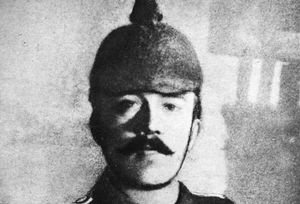
List Regiment (Nov 1-8): Gefreiter Adolf Hitler's 1st Company, 16th Bavarian Reserve Infantry, after seeing their first action on the Yser (Oct 29-31), spend a few days behind the lines at Werwick. [For further details, Click here.]
Cyprus: Great Britain, responding to Turkey's recent alliance with Germany, annexes Turkish Cyprus.
Balkans: A reinforced Austrian army begins a third offensive in Serbia.
East Africa: Battle of Tanga ends in defeat for British colonial troops
On November 5, 1914, the men of Indian Expeditionary Force B (IEF B) evacuate the seaside town of Tanga in German East Africa after failing in their amphibious invasion of the region on behalf of the British navy in World War I.
Organized in efficient Prussian fashion and trained well in the methods of bush fighting, Lettow-Vorbeck's still-outnumbered forces overwhelmed the British positions and forced them into a hasty retreat to their ships. By 3:20 p.m. on November 5, the evacuation was completed, marking the first—but not the last—British amphibious expedition to fail in German East Africa.
Lettow-Vorbeck's campaign in East Africa would become Germany's longest of World War I: He did not surrender until November 25, 1918, two weeks after the general armistice. Despite limited resources—British dominance of the seas meant that few German forces could be sent to reinforce their countrymen in Africa—the legendary general managed to engage his enemies along the coast of East Africa from Uganda to the Zambezi River without ever letting them catch him in defeat.
Click to Enlarge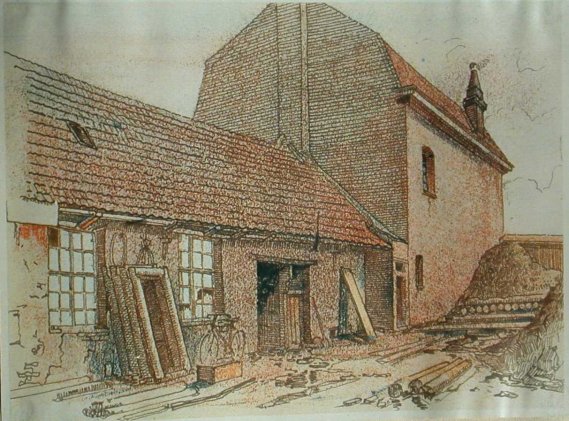
Fromelles Watercolor, 1915, by Hitler
1915 World War I (Oct 4, 1915 - Feb 29, 1916): Gefreiter Adolf Hitler's serves with 16 Reserve Infantry Regiment at Fromelles. [For further details, Click here.]
1916 Various:
World War I: The Kingdom of Poland is proclaimed by the November 5th Act by the emperors of Germany and Austria-Hungary. It was to be created within the former Russian territory of Congress Poland (however with no defined borders) in 1916 and would exist as a satellite state of Germany. The proposal never gained much support in Germany and in reality was aimed only at gaining a Polish Army for the Central Powers.
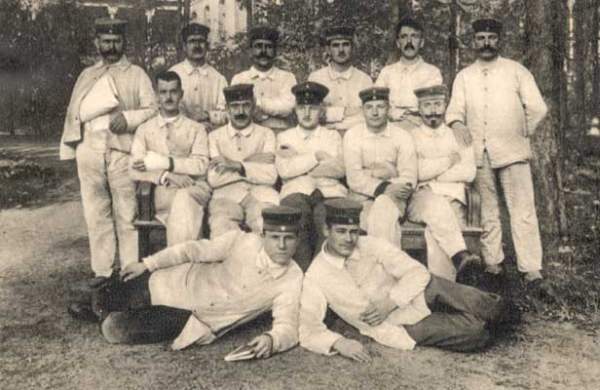
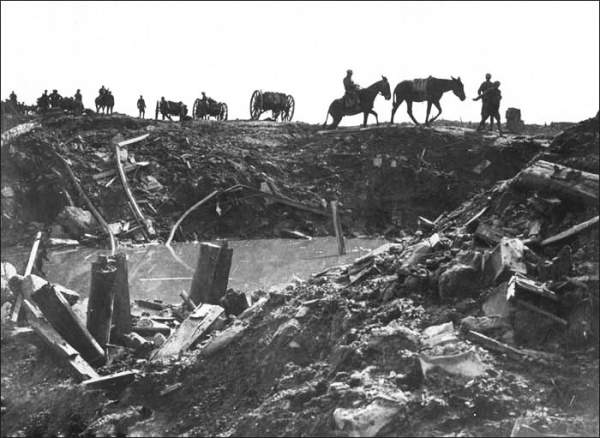
List Regiment: (November 3, 1917-March 25 1918) Dispatch Runner Gefreiter Adolf endures trench warfare north of Ailette with 3 Company, 16 Bavarian Reserve Infantry Regiment. [For further details, Click here.]
World War I: The Rapallo Conference—a direct result of the disaster at Caporetto—sets up the Supreme War Council, the first attempt to establish overall Allied unity of command.
At the Rapallo Conference of 5-7 November 1917 he proposed the establishment of the Supreme War Council (based at Versailles) intended as a co-ordinated Allied effort to oversee military strategy, initially directed at Italy, with a leading military figure from each Allied nation appointed to sit on the council. He believed that this would act to isolate both Robertson and Haig and consequently reduce their authority.
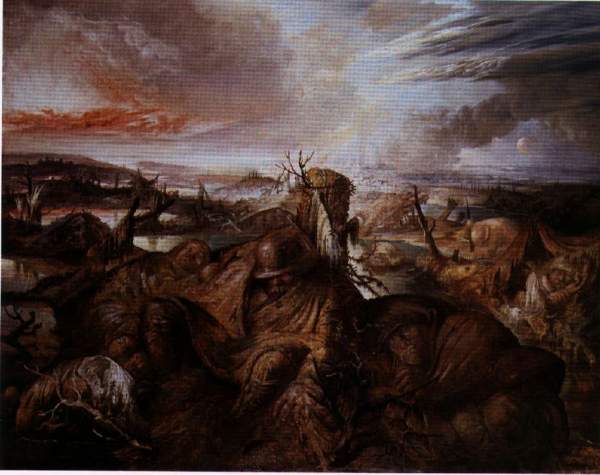
1918 World War I (Oct 15 - Nov 10): Gefreiter Adolf Hitler, blinded in a gas attack near Werwick on Oct 14, recovers in the Prussian Reserve Hospital at Pasewalk near Berlin. The doctors at this army hospital, on the cutting edge of medical treatments for gassed soldiers, provide Hitler with very good care, and his sight slowly and painfully begins to return to him over these few weeks. Hitler falls into a deep depression. After over four years on the front lines, his fighting days are over. In four years of war, the List Regiment has lost 3,754 dead, 8,795 wounded, with 678 taken prisoner. This is somewhat above the average for the German Armed Forces as a whole.
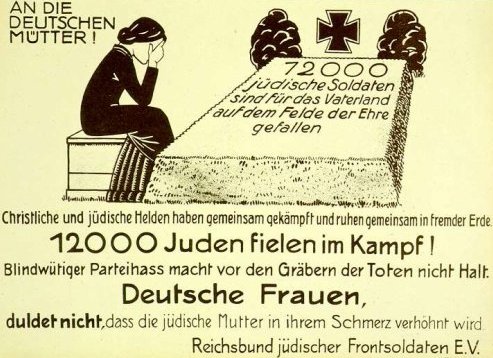
Throughout the length of the war, fifty-nine Jews served in the List Regiment, sixteen of these as officers. Thirty percent of the Jews in the List Regiment were honored for bravery, and seventeen percent were killed in action.[For further details, Click here.]
1925 Death: Sidney Reilly: Legendary British spy—and subsequent James Bond inspiration—Sidney Reilly was shot in a forest outside Moscow for his efforts to overthrow the Soviet government. [For further details, Click here.]
1936 Romania: The Iron Guard (Legionaries) denounce the Romanian government as a tool of Jews and Freemasons.
Like most European fascist movements, Romanian fascism emerged out of the political, economic, and ideological crisises that followed World War I. However, the development of Romanian fascism is distinct from the development of fascism in Western Europe because of the unique political history of the Romanian state. Although Romania was granted independence in 1877, attempts to denationalize and politically and economically dominate Romania by the Turks, the Greeks, the Russians, and Western Europe contributed to the formation of a fascist ideology that was uniquely Romanian.
1937 Various:
Germany and Poland sign an agreement regarding treatment of each other's minorities.
Hitler outlines secret plans and contingencies in the event of a future war, telling his generals that he intends to destroy Czechoslovakia. Some historians contend that the Hossbach Memorandum's historical significance has been greatly exaggerated. Others, such as William Shirer, emphatically state that it was on this date that Hitler first imparted his decision to go to war to the Commanders-in-Chief of the three armed services. This is also the date considered as the beginning of the-common plan or conspiracy to wage aggressive war-charged by the Nuremberg Tribunal. (THP)
1938 Sudetenland: Incorporation of the Sudeten German Heimatfront into the National Socialist party.
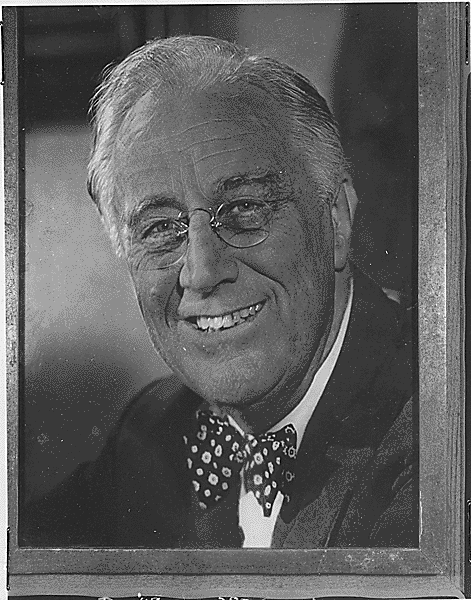
1940 Franklin Delano Roosevelt is re-elected for a third term as president of the United States:
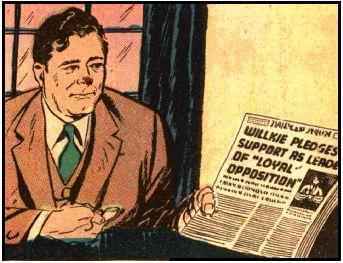
Roosevelt was elected to a third term with the promise of maintaining American neutrality as far as foreign wars were concerned: "Let no man or woman thoughtlessly or falsely talk of American people sending its armies to European fields." But as Hitler's war spread, and the desperation of Britain grew, the president fought for passage of the Lend-Lease Act in Congress, in March 1941, which would commit financial aid to Great Britain and other allies. In August, Roosevelt met with British Prime Minister Winston Churchill to proclaim the Atlantic Charter, which would become the basis of the United Nations; they also drafted a statement to the effect that the United States "would be compelled to take countermeasures" should Japan further encroach in the southwest Pacific.
Despite ongoing negotiations with Japan, that "further encroachment" took the form of the Japanese bombing of Pearl Harbor—"a day that would live in infamy." The next day Roosevelt requested, and received, a declaration of war against Japan. On December 11, Germany and Italy declared war on the United States.
Certain wartime decisions by Roosevelt proved controversial, such as the demand of unconditional surrender of the Axis powers, which some claim prolonged the war. Another was the acquiescence to Joseph Stalin of certain territories in the Far East in exchange for his support in the war against Japan. Roosevelt is often accused of being too naive where Stalin was concerned, especially in regard to "Uncle Joe's" own imperial desires.
1941 Various:
Countdown to Infamy: Tokyo to Washington:
Because of various circumstances, it is absolutely necessary that all arrangements for the signing of this agreement be completed by the 25th of the month. I realize that this is a difficult order, but under the circumstances it is an unavoidable one. Please understand this thoroughly and tackle the problems of saving the Japanese-US relations from falling into chaotic condition. Do so with great determination and with unstinting effort, I beg of you. This information is to be kept strictly to yourself only.
World War II: From a letter from Martin Bormann addressed to all Reichsleiter, Gauleiter, and Kreisleiter:
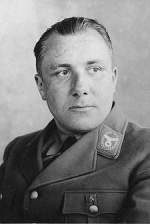
To save costs, service departments of the Army will generally be contacted regarding transport of corpses (furnishing of vehicles) whenever possible. No coffins will be indented for the transfer and burial. The body will be completely enveloped with strong paper (if possible, oil, tar, asphalt paper) or other suitable material. Transfer and burial is to be carried out unobtrusively. If a number of corpses have to be disposed of, the burial will be carried out in a communal grave. In this case, the bodies will be buried side by side (not on top of each other) and in accordance with the local custom regarding depth of graves. Where a graveyard is the place of burial a distant part will be chosen. No - we repeat - No burial ceremony or decoration of graves will be allowed.
1941: Arndt Pekurinen, conscientious objector:
On this date in 1941, Finnish pacifist Arndt Pekurinen was executed at the front for refusing to fight. Initially conscripted in the 1920's, Pekurinen had refused to serve under arms and spent 1929-31 in prison for his troubles. He was a minor cause celebre; British MPs and big international names like Einstein and H.G. Wells pressed for his release.
A change in the Finnish conscription law — the bill was called the 'Lex Pekurinen' — finally saw him freed to civilian life, but he was drafted anew to fight the Soviet Union in the 'Continuation War'. When he again refused, he was shot at Suomussalmi without trial — though two men refused to do it before someone finally agreed to be the executioner. [For further details, Click here.]
1942 World War II: Rommel retreats from Fuka:
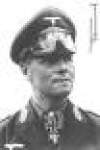
After initially resisting the attack, Rommel decided he no longer had the resources to hold his line and on the 3rd November he ordered his troops to withdraw. However, Adolf Hitler overruled his commander and the Germans were forced to stand and fight. The next day Montgomery ordered his men forward. The Eighth Army broke through the German lines and Erwin Rommel, in danger of being surrounded, was forced to retreat. Those soldiers on foot, including large numbers of Italian soldiers, were unable to move fast enough and were taken prisoner. [For further details, Click here.]
[See: What Was The Mediterranean Strategy, And Could it Have Enabled Hitler to Win the War?]1943 World War II: Various:
The US Fifth Army reaches the Sangro river in southern Italy:
Winston Churchill had long regarded southern Europe as the military weak spot of the continent (in World War I he had advocated the Dardanelles operation and during World War II he favored the Balkans as an area of operations, for example in Greece in 1940 and so on). Calling Italy the "soft underbelly" of the Axis Churchill therefore advocated this invasion instead of a cross-channel invasion of occupied France. But Italy itself proved anything but a soft target.
Bombing of Vatican City:
This "occurred twice during World War II. The first occasion was on the evening of 5 November 1943, when a plane dropped bombs on the area south-west of Saint Peter's Basilica. The second bombing, which affected only the outer margin of the city, was at about the same hour on 1 March 1944." [For further information, click here.]
1944 World War II: German forces under Hossbach recapture the town of Goldap in East Prussia.
1947: A story appears in the El Paso Times: German V-2 Scientists Here among 72 Asking Citizenship. The story details an announcement by Major Hamill, who states that every German at Fort Bliss eligible to do so has applied for American citizenship, and every one not yet eligible nevertheless plans to renounce their German citizenship.
[See: Wunderwaffen: Hitler's Deception and the History of Rocketry.]Edited by Levi Bookin (Copy editor)
levi.bookin@gmail.com



Click to join 3rdReichStudies



Disclaimer: This site includes diverse and controversial materials--such as excerpts from the writings of racists and anti-Semites--so that its readers can learn the nature and extent of hate and anti-Semitic discourse. It is our sincere belief that only the informed citizen can prevail over the ignorance of Racialist "thought." Far from approving these writings, this site condemns racism in all of its forms and manifestations.
Fair Use Notice: This site may contain copyrighted material the use of which has not always been specifically authorized by the copyright owner. We are making such material available in our efforts to advance understanding of historical, political, human rights, economic, democracy, scientific, environmental, and social justice issues, etc. We believe this constitutes a "fair use" of any such copyrighted material as provided for in section 107 of the US Copyright Law. In accordance with Title 17 U.S.C. Section 107, the material on this site is distributed without profit to those who have expressed a prior interest in receiving the included information for research and educational purposes. If you wish to use copyrighted material from this site for purposes of your own that go beyond 'fair use', you must obtain permission from the copyright owner.
Please Note: The list-owner and the moderator of 3rdReichStudies are not responsible for, and do not necessarily approve of, the random ads placed on our pages by our web server. They are the unfortunate price one pays for a 'free' website.